Dr Henry Sharland Pope (1865-1923) Bridgwater Borough Medical Officer
Henry first came to Bridgwater in 1884 for his sister’s wedding and returned as a general practitioner in 1897. He was also the hard-working borough medical officer for twenty-five years, a Liberal councillor and a member of the Bridgwater School Board.
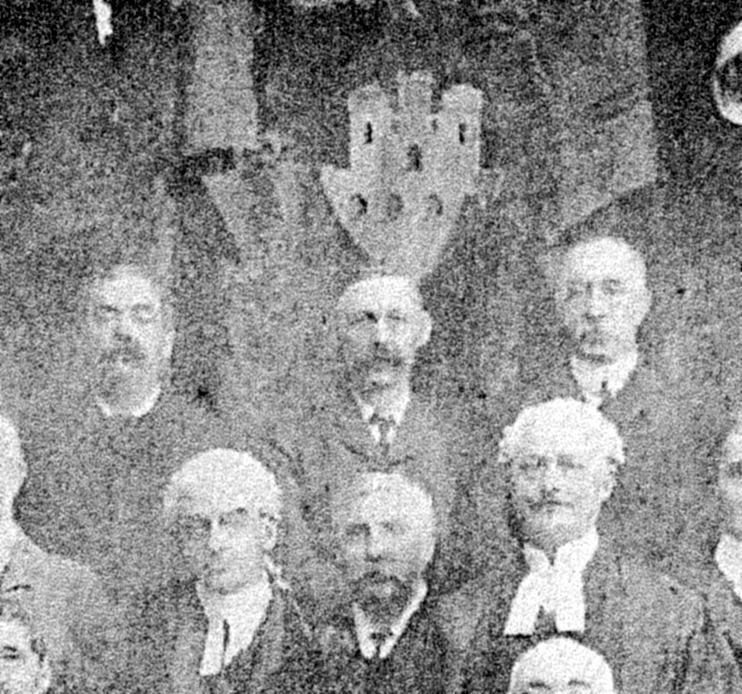
His sister Mrs Edith M. Dukes also has a biography on this website. Henry's public health initiatives in some ways echoed the service to the
community of his sister Edith and their father.
The Pope family of Sandford, Devon
The Pope family are well-remembered in Sandford, not so much for a farming tradition dating back to 1523, but rather because one man left the family farm. Rev. Henry Pope (1816-1889) was educated at private schools in Crediton and Barnstaple, which was quite sufficient for a farmer. The whole family were Anglican, but in his twenties, the future clergyman began questioning the teachings of his parish church. He attended a nonconformist church in Crediton and was soon converted. In his family’s view they were “the despised Dissenters” and his father was shocked and angry, partly on religious grounds but also because of status. “You are bringing us all into disgrace, going with a lot of tinkers and cobblers!” Henry immediately walked out and a friend had to go back to collect his personal possessions, which a servant had thrown out the window. Henry and his father didn’t speak for ten years.
Henry established a school in Sandford for nonconformist children and became its schoolmaster. In 1847 he contributed a large sum towards the building of a new Sandford Congregational Church. He took over on the death of the elderly pastor a few years later and remained in Sandford as pastor and schoolmaster for the rest of his life. In 1862 Rev. Henry Pope married Catherine Sharland (1835-1891), who was raised in Fareham, Hampshire. They had six children and Catherine also helped her husband run the school.

Catherine was visiting her family in Fareham when her third child, Henry Sharland Pope, was born on 30 June 1865. The younger Henry grew up with his brothers and sisters in Sandford. They began their education at their father’s school. The eldest sister, Edith, had the most outstanding academic career of the six Pope children. She was sent to Milton Mount College, a girls boarding school near London which educated the daughters of Congregational ministers. The next sister, Kate, attended a more traditional and perhaps less academic girls’ boarding school in Teignmouth. When he was old enough, Henry attended Crediton Grammar School. He and his brother John used to walk nearly two miles there and back. Between Henry and John in age was Lydia Jane Pope (1868-1947). She followed Edith to Milton Mount College. The youngest sister, Miriam, died aged three.
A Doctor in the Family
Henry passed his matriculation in 1884 and was admitted to Cavendish College, Cambridge. This was a public hostel, not a true college, but the students were still eligible for degrees. The fees for board and tuition were significantly lower than in the traditional colleges, which was important for the son of a country pastor. Rev. Henry Pope lived to see his son graduate with a B.A. in 1887 and then begin a medical degree. The old man was already frail and he died in 1889. The younger Henry graduated M.B.B.S. in 1891 and M.A. in 1892.
The same year that Henry first went to Cambridge, his sister Edith married Rev. E. J. Dukes, the Congregational Church minister at Bridgwater. There was a happy family occasion in 1891 when his next sister, Kate, was married in the same church. Rev. E. J. Dukes and the groom’s father officiated. Dr Henry S. Pope was best man and the bridesmaids included Lydia Pope and little Irene Dukes. The bride was given away by her mother. Mrs Catherine Pope died only a couple of months later. The following year Lydia Pope married Bridgwater grocer Metford Rowe of High Street. Metford was the Congregational Church organist at Fore Street.

Just as today, newly graduated doctors began their careers as resident medical officers in a hospital where they treated patients under the supervision of an “Honorary” or visiting senior doctor. These positions were usually for six to twelve months. In 1891 Henry became a House Physician at the General Lying-in (maternity) Hospital, York Road, Lambeth. He was appointed to the Royal Hospital for Diseases of the Chest in City Road, London, in 1892. He was also a house surgeon at the London Hospital. After a few years of working long hours in the very rigid, hierarchical atmosphere of the hospitals, Henry joined the Ocean Steamship Company as a ship’s medical officer. Amongst other places, he travelled around India.
Bridgwater
When Henry returned from his travels, he looked for an opportunity to go into practice as a GP. It was fortuitous that in late 1896, news reached Edith and Lydia that after many years at Castle Bailey House, Bridgwater, Dr Henry Brook (1827-1913) was planning to retire. This was an opportunity for at least some of their family to live in the same town. In 1897 Henry took over Dr Brook's practice at Castle Bailey House, 15
York Buildings, which was also his residence. Edith was already very unwell and she died in February 1898. Henry had no doubt treated many hospital patients in their final illness, but this time he was the patient’s brother, not her physician, and there was nothing he nor her doctors could do.
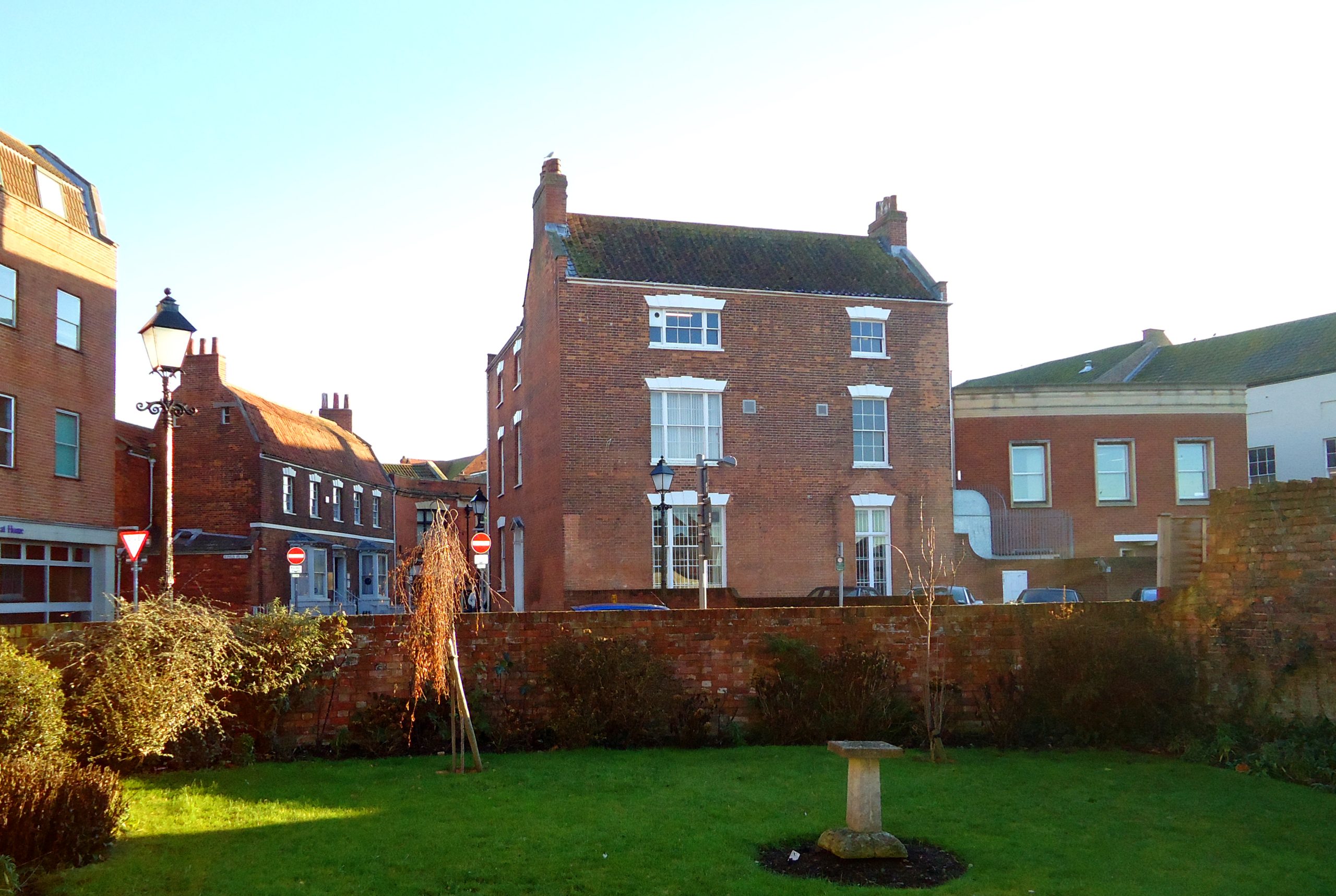
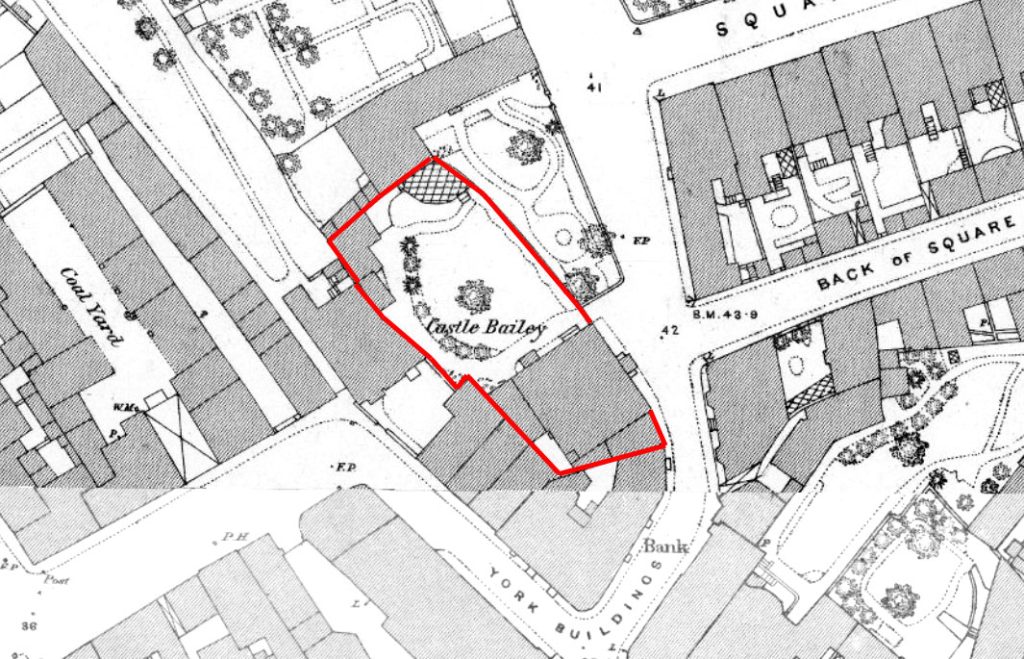
As well as working in his private practice, Henry accepted a number of appointments. He held the post of medical officer and vaccination officer for No. 3 district of the Bridgwater Board of Guardians. In March 1898, he was appointed medical officer of health for the borough and later he was given the positions of school medical officer for the borough, surgeon to the Borough Police Force, and medical officer of the Isolation Hospital. He was also medical officer to the Halswell Lodge of Oddfellows and the Goathurst Friendly Society, a certifying medical officer under the Factory Act and one of the panel doctors under the National Health Insurance Act. There were medico-legal aspects to examining both victims of crime and prisoners or certifying eligibility for a pension or work safety. Henry was a respected member of the community and from time to time he testified in court as an expert witness, but most of his work did not reach the newspapers.
As borough medical officer, Henry provided council with a quarterly report which included statistics of births and deaths, school attendances, issues related to vaccinations and the management of significant outbreaks of infectious diseases such as influenza and whooping cough. He gave medical advice on public health issues and other areas of concern to the council. For instance, after the war, he helped estimate the number of new homes needed per year to improve accommodation for workers and their families.
Aside from medical matters, Henry’s other main interest was Bridgwater’s schools. His father had been a strong supporter of education. In November 1900 Henry was elected to the Bridgwater School Board, along with fellow Liberal Kate Spiller. At the monthly meeting of the School Board in January 1901, Kate Spiller proposed raising the school leaving age from thirteen to fourteen and Henry seconded the motion. They were outvoted and it was not until 1918 that it became law. As borough medical officer and later school medical officer he also attended borough education committee meetings when required. One dark evening in December 1908 on the way out from such a meeting, Henry fell downstairs. He was shaken and bruised but was able to go home in a cab. With public duties and patient care, he had a busy life and it is unlikely that he took time off to recover.
The combination of an interest in local politics and his work for the borough, was incentive to stand as a Liberal in the council elections of November 1902. There were eight candidates for seven positions. Henry was elected comfortably and served as a town councillor for the following year.
First World War
The war years added considerably to Henry’s patient load as younger doctors enlisted. Henry was too old to serve overseas and had no children of his own, but soon everyone knew someone whose son had been killed or wounded. In his annual report for 1915, Henry described how Bridgwater had changed. The full report is included as an appendix.
“In previous years I have frequently dealt with the physical characters of the town and nature of the occupations of its inhabitants. They remain practically as before enumerated. It is distinctly a business town, the chief industries being brick and tile making, and shipping work usually gives employment to a large number of men, but owing to the effects of the war, these particular trades have been seriously hit, chiefly due to the number of men who have joined the army and the lessened demand for material. Our cabinet and cement works have been busy, while industry such as collar and shirt-making have been unusually active through undertaking work for the government in making shirts and bandoliers for the soldiers. Hence the employment of females has been on a larger scale than ever before and has helped to keep up the material prosperity of the town.”
There were outbreaks of whooping-cough and measles. The Isolation Hospital had a new ward as yet unoccupied but ready if needed in an epidemic. Notably three young boys with meningitis had been admitted during the year. Patients with tuberculosis were sent to sanitoria for specialised treatment but if they remained at home, Bridgwater now had a health visitor to encourage them to observe precautions. During 1915 a school dentist was appointed for the first time. He saw 502 children and all but 26 needed either an extraction or a filling.
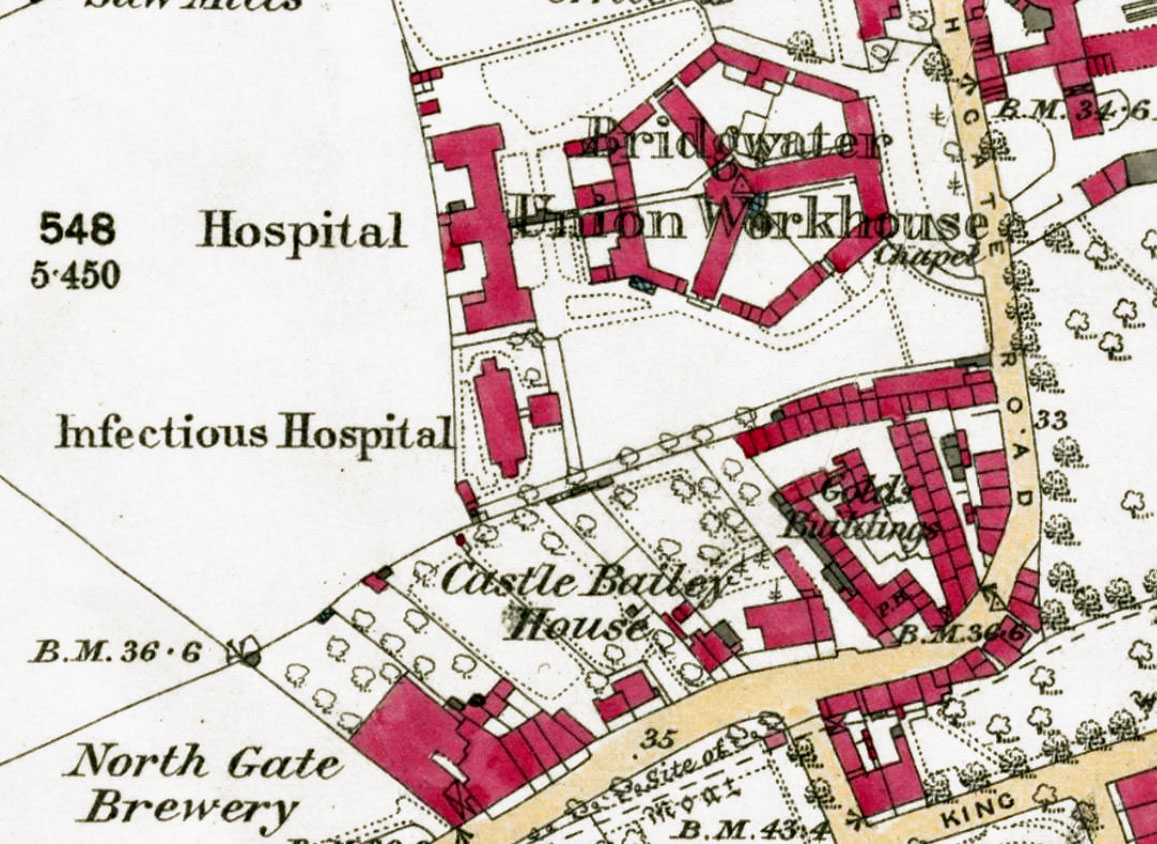
Henry died suddenly on 10 August 1923, though from the account of his death published in the local newspapers, he had been in poor health for at least three months. He had resigned from most of his committees and public duties, for health reasons, not long before his death. The following is from the Taunton Courier:
“The residents of Bridgwater heard with surprise of the death of Dr Henry Sharland Pope, a well-known local practitioner and late medical officer of the Borough, which occurred on Friday evening, under particularly sad and sudden circumstances. The deceased gentleman, who was 57 years of age, had been in failing health for some time past. A few years ago he met with a serious motor car accident, sustaining a broken leg and other injuries, and although recovering from these, he had, during the present year, developed internal trouble, going to a nursing home in Bristol early in May for an operation. On returning home it was evident that he was broken in health and although he went away for a change, he returned very little better and was unable to discharge his duties, which were carried out for him by Dr Cromie of North Petherton and it is understood that he intended retiring from practice shortly. He was out on Thursday of last week, but on the following morning he was found in bed in a state of unconsciousness, from which he never rallied. Several doctors were called in and also two nurses, but in spite of all their efforts he passed away on Friday evening. The circumstances of his death are fully set out in our report of the inquest proceedings and the indications are that he died from an overdose of a narcotic drug. Owing into the state of his health Dr Pope had been very depressed of late and suffered a good deal of sleeplessness and the probability is that he took the drug to produce sleep.”
The inquest was held three days later in the courthouse in Northgate. There had been two other people in the house on the Thursday evening: a housekeeper, Dorothy Knight, and an old friend from his Cambridge days, Dr Robert Earl, who was visiting from London. Both testified that Henry had been calm in the evening and that there was nothing unusual, though they knew he had been ill, was not sleeping well and had seemed depressed in recent times. He had never threatened to take his own life, but he had expressed regret that he was not dead. When he didn’t come down to breakfast on Friday morning, Dorothy knocked on his door but he didn’t answer. Dr Earl then went in and tried to wake him, but Henry was unconscious. They sent for Dr Bird who found morphine tablets in his room and diagnosed an overdose. He called for assistance and administered the usual treatment, but it was unsuccessful. The verdict was death by misadventure. What was not revealed at the inquest? The morphine tablets suggest that the surgery three months earlier was not a cure and that Henry was suffering from unrelenting pain. This would explain depression and being unable to sleep. Men of Henry’s generation were supposed to have a stiff upper lip and not complain of pain.
In his obituary, Henry was praised for not charging poor patients that he knew were not in a position to pay, and for being kind and genial. He was a single man who attended the Fore Street Congregational Church and who supported the Liberals in national election campaigns in the Bridgwater division. His sister Lydia Rowe had visited him frequently when he was ill, including on the Wednesday. When she was called on that Friday she came at once and was with him when he died in the evening.
Henry was buried in the Wembdon Road Cemetery.
Henry left his residence, car and personal effects to his sister Lydia. He owned meadowland at Frost, Morchard Bishop, Devon, the same parish in which his father was born, and he left this to his brother John Owen Pope in MacTaggart, Saskatchewan, Canada. After bequests to his three brothers-in-law, the remainder of his estate was divided into equally between Edith, Kate, Lydia and John, with Ediths's share to be divided between her children. Dr Cromie became the new doctor at Castle Bailey House.
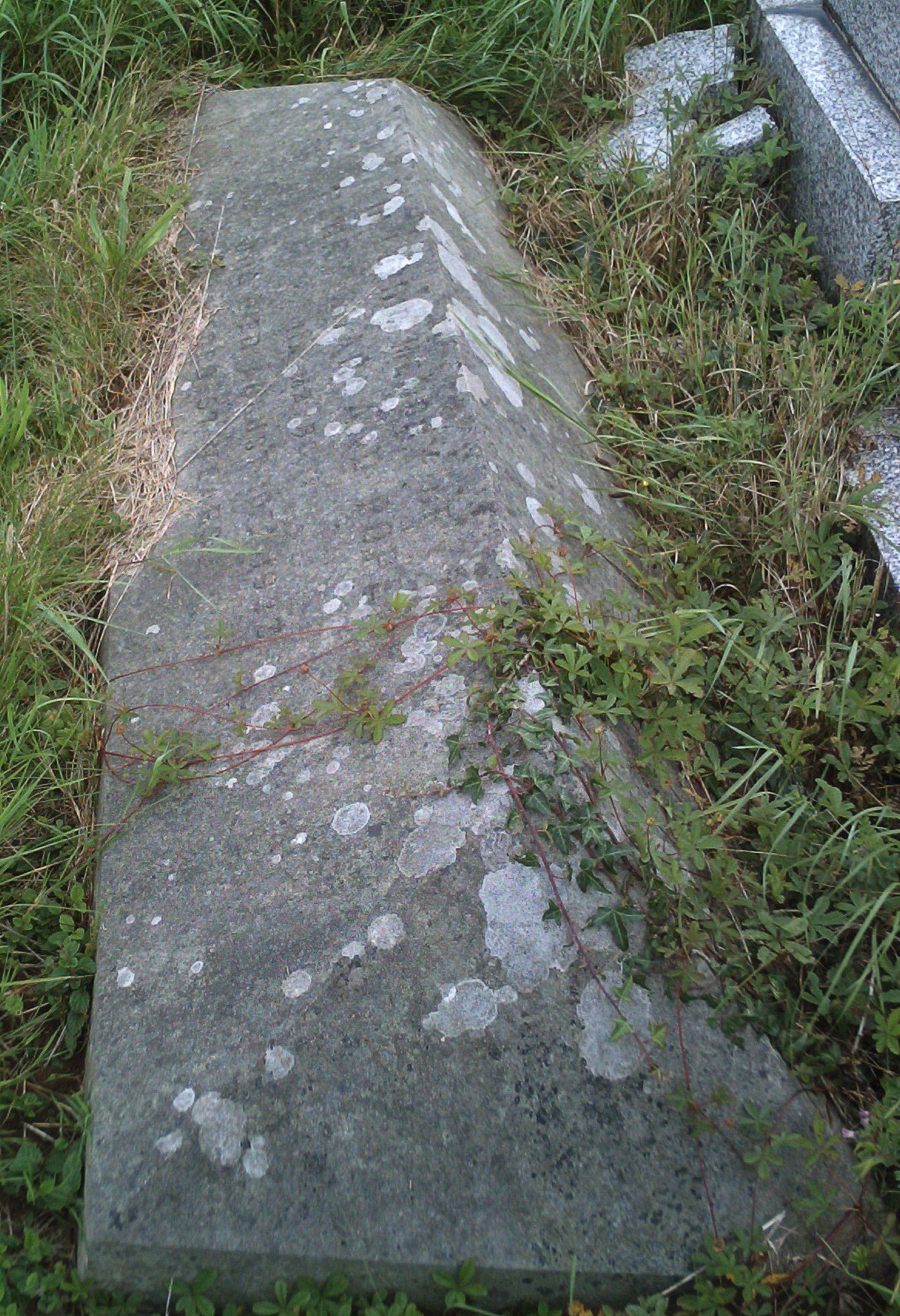
by Jillian Trethewey and Clare Spicer 24/7/25
Appendix – Dr Pope’s annual report for 1915
The Devon and Somerset Weekly News, 27 April 1916, page 2.
Health of Bridgwater Borough
Much interesting information concerning the health and sanitary condition of the Borough of Bridgwater for the year 1915 is contained in the annual report of the medical officer of health, Dr H. S. Pope, and the Borough surveyor, Mr F. Parr, as well as in the annual report of Dr Pope as school medical officer.
Reporting on the health of the borough, the medical officer gives the following statistics: population of Borough (census 1911) 16,802; estimated population to middle of 1914, 15,133; area in statute miles 961; birth rate per 1000 of population 22.1; death rate per 1000 of population, 15.6; zymotic (infectious disease) death rate 1.1; infantile mortality per 1000 births 121.
The following are other extracts from the report:
In previous years I have frequently dealt with the physical characters of the town and nature of the occupations of its inhabitants. They remain practically as before enumerated. It is distinctly a business town, the chief industries being brick and tile making, and shipping work usually gives employment to a large number of men, but owing to the effects of the war, these particular trades have been seriously hit, chiefly due to the number of men who have joined the army and the lessened demand for material. Our cabinet and cement works have been busy, while industry such as collar and shirt-making have been unusually active through undertaking work for the government in making shirts and bandoliers for the soldiers. Hence the employment of females has been on a larger scale than ever before and has helped to keep up the material prosperity of the town. There has been no sign of poverty or distress among the inhabitants, although prices of all commodities have increased and the health of the people does not appear to have been affected to any extent by the rise in the cost of food. The weather conditions have on the whole being favourable and, except for a visitation of whooping cough in the spring and a widespread epidemic of measles in the autumn, there has been no serious amount of sickness of an epidemic nature. Fortunately, the epidemic of measles was generally speaking of a mild character, but was, however, the cause of 10 deaths. The disease was not at that time notifiable in the borough, so it is impossible to state the number actually attacked, but it was certainly very widely distributed. None of the occupations of the inhabitants have a prejudicial influence on the health of the people. The factories are well ventilated and have been frequently inspected by the sanitary Inspector, who has personally had increased duties thrown upon him owing to a diminished staff of helpers.
Water supply
The analyses made by the borough analyst have shown that we have a supply of good quality water which is soft and very useful for domestic purposes. During the year the supply has been ample and its quality maintained.
Drainage.
The sewers and drains have well discharged their duties and the town is fortunate in having a tidal river into which it can pour sewage and surface water without harm to the inhabitants. No new work has been undertaken during the year but repairs have been done when needed.
Scavenging
This has been regularly carried out by the corporation workmen and the refuse carted to old disused pits in the brickyards where paper and other article of a combustible nature are burnt.
Public lodging houses
These are four in number and the usual rules in connection with them have been attended to by the police and the borough surveyor.
Schools
Being school medical officer as well as medical officer of health, I can testify to the condition of the school buildings and premises from a sanitary point of view. Each school block is well provided with water and wash handbasins are available to enforce cleanliness among the children. The health of the children has been more regulated by the work of our school nurse. This work is very valuable and is much appreciated by those who have any consideration for the welfare of their children.
Bacteriology
Very little work has been required in this department as we have had scarcely any diphtheria to deal with.
Food
Milk supply is plentiful and good while the analyses made by the public analyst have on the whole proved satisfactory. The dairies and milk shops and cowsheds have been regularly inspected and steps taken to keep them in good order. I am inclined to think that people are beginning to realise how important it is from a health point of view to prevent food being contaminated, especially by flies, for they have been proved to be the most potent carriers of infections of all kinds. It is desirable that a regular crusade be carried on all the year round to exterminate these obnoxious little beasts, although it is in summer that they are most in evidence. In the summertime myriads of these small insects can be caught by a means of flypapers and various forms of traps.
Housing and town planning work
Owing to a diminished staff of workers in the department of inspection, the work has been rather less than usual but a fair number of premises have been examined, and where defects were found steps have been taken to have them remedied. There is ample accommodation for all classes of the population, although but little building has been done under present conditions it has not been possible to deal with some of the old buildings, which under more favourable circumstances, should be attended to, as we have a number of houses which are unsatisfactory from a health point of view in that ventilation and lighting are sadly deficient through the premises being back to back.
Baths
These consist of open air baths belonging to the corporation and have been improved during the year by cutting down some of the trees which used to shed their leaves into the water, thereby rendering it somewhat objectionable at times. It is difficult to ask just now that by a system of heating the above should be made available all year round, but it is a suggestion which may with advantage be carried out when circumstances are more favourable for introducing improvements.
Slaughter houses
These have been regularly inspected and found to be in fair order and it is to be hope that the provision of a public abattoir will be favourably considered when the authority is in a position to do so.
Bake-houses
These have been found to be kept in fair condition
Infectious disease diseases
Scarlet fever has produced the largest number of cases which have required treatment in the infectious diseases hospital.
(Isolation) Hospital
This institution has again been in fairly constant use and an addition has been made there by erecting a comfortable building for extra accommodation, which will enable us to treat a larger number of different diseases simultaneously should occasion. This new building comprises one well lighted ward with a veranda outside, as well as separate bathroom and extra sanitary convenience. It has not been necessary to use this building up to the present, but it will be a great convenience for treating diseases in addition to those for which we have hitherto made provision. Now that measles has been made a notifiable disease, it will be possible to isolate some of the earliest cases, and thus perhaps check an epidemic at the outbreak. During the year we have had three cases of cerebro-spinal meningitis, all occurring in comparatively young boys. They were removed to hospital as soon as discovered, but the origin of the disease was not satisfactory made out. I am more than pleased with the way the nursing at this institution has been carried out by those in charge. My instructions have been fully attended to, and it is gratifying to be able to report that the patients and their friends have frequently spoken in appreciation of the kindly ministrations of Mr and Mrs Bishop and their daughter, who have done all they could to alleviate the sufferers. We have had several very serious cases to treat there and the town is to be congratulated on having a staff at the hospital who are so capable of carrying out their duties in such an efficient, yet homely manner.
Tuberculosis
During the year 37 cases of this disease have been notified, three of which occurred in non-residents. Fourteen of these have been transferred to sanatoria and homes for special treatment. The dispensary is doing good work for patients suffering from this disease in the way of direct treatment and arranging for suitable cases to be sent away to a sanatorium, while Miss Lewis’s (health visitor) home visits are calculated to instil into the minds of the patients the need for precautions. Shelters are also provided by the county council and these are used wherever the home accommodation is not satisfactory.
Vital statistics
The registrar general has this year estimated that the civil population of the town is 15,133 which, when compared with my estimation 16,970, will show a diminution of 1,837 which may be roughly taken to represent the number of men who have left to join the various forces of the Crown. The loss of this large number from the healthiest section of the community has naturally had the effect of greatly altering the rates of mortality and births. The gross number of deaths registered in the borough was 264 and in order to obtain the net death rate, it was necessary to subtract those of 35 non-residents and two soldiers, who according to the suggestions of the registrar-general are not this year to be reckoned as residents, although their homes were in the town; our figures are only to refer to the civil population. This calculation reduces 264 to 227 and today we must add 10 residents who died elsewhere, yielding the number of deaths is 237 which gives a net death rate of 15.6 of the estimated population.
Notifications of birth
335 births were registered in the borough or born outside, but actually belonging to the town and all those except 22 had been previously notified to me. 166 were males and 169 females. The number of births 335 is the lowest on record, but seeing that so many potential fathers are away from the town it is not surprising this should be the case. It only goes to prove the necessity of carefully watching over the health of little ones who do arrive as upon them the future welfare and population of the State will largely depend.
Ophthalmia neonatorum
Fortunately, we have not had many cases of this disease, but when it crops up we have on hand our school nurse and health visitor, Nurse Besgrove, to undertake the active treatment of the disease under my supervision.
General remarks
The general health of the town throughout the year has been very satisfactory. We have had no really big epidemic to deal with, which might have been introduced by the abnormal condition of general affairs. There has been a constant going and coming of soldiers on sick and other leave, which might have been the means of bringing in diseases which are not frequently among us in the ordinary way. Convalescents from dysentery, and enteric fever, and other infectious diseases have come among us and as early information has reached me that they have come, it has been possible to keep a watch on those who arrive and to be on the lookout for anything which may crop up in our midst. This has been an extra source of anxiety to your sanitary staff, but they are fully alive to the dangers that may arise and are ready to at once take steps when needed.
The report of the Borough surveyor shows that the number of inspections of factories was 37, workshops 155 and workplace is 19, making a total of 211.
The cases notified under the infectious diseases notification act number 25 as against 27 in 1914.
Under the food and drugs act, samples had been obtained and submitted to the Borough analyst for examination with the following result.
Milk: 13 samples, 12 genuine, one adulterated.
Butter: three samples, three genuine.
During the year nine sets of drawings showing particulars of new buildings was submitted for the consideration of the town council.
Reporting on the rainfall for 1915 at the pumping station, Ashford, and Blake Gardens, the Borough surveyor reports that no rain fell on 186 days at Ashford and 204 days at Bridgwater. The wettest month was December and the driest month was March at Ashford in April at Bridgwater. The greatest fall in 24 hours at each place was on October 23rd.
Dr Pope, reporting on school medical inspection, says the work at the schools has been carried on along much the same lines as in previous years but an additional group of children has been inspected to meet the requirements of the Board of Education. The work at the clinic has grown very considerably the past year, and from the variety of cases attended to it is possible to have some idea of the usefulness of a school clinic. The cases treated at the clinic by the school nurse numbered 716 and the attendances 1635, while 379 home visits were paid. The report by Dr Pope add the following.
During the year I am pleased to report that a commencement has been made in dealing with the children’s teeth. Acting on suggestions contained in my previous reports, Mr J. C. Shuffrey was appointed school dentist to examine and attend to the teeth of children between the ages of six and eight years. It was arranged that the dentist should give 40 afternoons a year for dental work and experience is showing us that much more can be done in this time than was contemplated when arrangements were being made. This in my opinion, is largely due to the tact and the happy manner which the school dentist and nurse display in bringing the children to face the dentist chair. The teachers in all the schools have been helpful in preparing the children for this trying ordeal and one of the teachers to whom they are accustomed always accompanies the children when on this particular errand and I am pleased to report that a large number of parents have been present to inspire confidence in their little ones at that time.
Number of children attended Dental clinic 502; number of extractions 926; number of fillings 39; number of children not requiring treatment 26.
In my opinion the school premises are in good order and suitable for their work. They are kept clean and frequently inspected. Owing to the war it has not been possible to go on with the appointment of an oculist, but I have pleasure in welcoming on our staff Mr. Shuffrey the dentist and Nurse Besgrove. Both of them have shown their suitability for the work they have undertaken. In obtaining information as to some cases of children absent from school through illness, valuable help has been given by the school attendance officer, Mr Pippin.
Sources:
Bridgwater Heritage Group website.
British Newspaper Archive
Census records and parish registers.
Medical register.
Munday, Daphne. A Parish Patchwork. 1985. (A local history of Sandford,
Devon)
